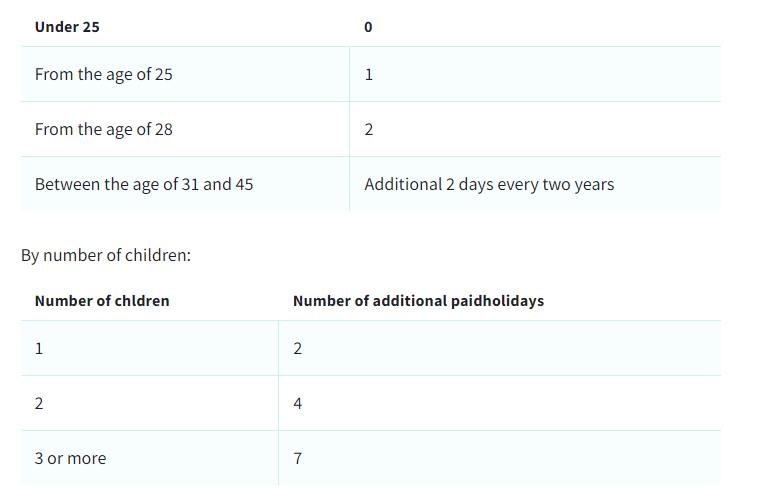Starting a career
Starting a career
Rules of labour law
The rules of labour law are regulated in Act I of 2012 (Labour Code), available in English on the Labour Authority’s website (under ‘Major laws and regulations to be applied to workers posted to Hungary’). The regulation is very similar to the labour laws of other European countries in that it has only minimum requirements as to the content of employment contracts. Employment contracts, modification and termination of employment must be incorporated in writing. Employment contracts are usually concluded for an indefinite period of time.
Probation period
At the beginning of the employment relationship, the parties may specify a probationary/trial period for a maximum of three months, or in the case of a collective bargaining agreement, for a maximum of six months. Employment contracts may also be signed for a fixed term but the extension thereof requires the existence of the legitimate economic interest of the employer, and the period thereof may not exceed five years together with the extension of a contract.
Termination of employment
Termination of employment is usually based on mutual agreement of the parties or by a unilateral notice given by one of the parties. The employer is required to provide a reason for its termination of the employee’s contract, and the reason must be realistic and rational. Employees may terminate their employment by notice without the obligation to provide a reason. In case of termination with immediate effect, both the employer and the employee are required to provide a substantial and verified reason. Employees have a 30-day forfeit period for legal remedies if the reason provided for the termination with notice or with immediate effect is contrary to the law.
Working hours
In Hungary, regular working hours are 40 hours per week, Monday to Friday, in full-time employment. Part-time employment and distance working are also possible, in this way offering flexibility to the employee. Working time conditions and extra payment for overtime are strictly regulated by the law.
National minimum wage and salaries
The national minimum wage (NMW) of a country is the minimum amount (lowest salary) per hour, per day, or per month that employers may legally pay to workers. From 2023, the NMW in Hungary is HUF 296,400. An Employees’ salary must be based on the responsibility assigned to their position, educational background and professional experience.
Holidays, maternity leave rights and pension
The annual paid holiday is 20 workdays, which increases with age and the number of children they have in categories in the following way:
By age: increasing with 1 day after every 2/3 years, till additional 10 days

Work permits
Citizens of EU member states and their family members may be employed in Hungary without a work permit. Nonetheless, the employer is required to report the employment data of EU citizens to the employment centre for statistical services. With a few exceptions, non-EU citizens need a work permit (part of the residence permit application process) to work in Hungary. Individual work permits (Residence Permit for the Purpose of Employment) are usually valid for a maximum of 2 years with the option of extension for another two years. Officially, the employee applies for the work permit, but first the employer must submit a labour demand to the labour authority (in this case the Labour Department at the District Office of Debrecen of the Hajdú-Bihar County Government Office) in order to document that they had already tried to fill the position with a Hungarian citizen (available here). Non-EU citizens may only begin their employment in Hungary after they have obtained all permits and documents necessary for the employment.
To learn more on the subject, visit the official website of the National Directorate-General for Aliens Policing.
Employment of interns and students
Students and interns can be employed through Hungary’s largest student employment network called “Meló-Diák“. Hiring interns and students make employers entitled to various subsidies and aids.
Trade unions
Hungary has a low level of trade union density, under 10%. Trade unionism is also fragmented, with five major confederations: the Democratic Confederation of Free Trade Unions (LIGA), the Forum for the Cooperation of Trade Unions (SZEF), the National Federation of Workers’ Councils (MOSz), the Hungarian Trade Union Confederation (MaSZSZ) and the Trade Union Block of Intellectual Employers (ÉSZT). All relevant information that you might need as an employer working in Hungary is available in English on the official website of the Labour Authority.